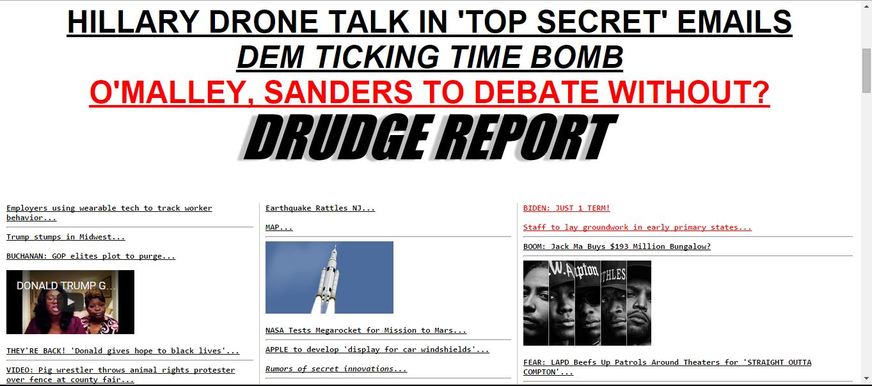A Washington, D.C., appeals court is set to hear arguments later this year on new net neutrality rules, which critics say could lead to government regulators censoring websites such as the Drudge Report and Fox News.
The U.S. Court of Appeals for the D.C. Circuit will hear oral arguments against the Federal Communications Commission's rules on Dec. 4. A panoply of amicus briefs filed with the court last week offer a preview of the arguments.
In its February vote on net neutrality, the Federal Communications Commission stated that broadband providers do not have a right to free speech. "Broadband providers are conduits, not speakers … the rules we adopt today are tailored to the important government interest in maintaining an open Internet as a platform for expression," the majority held in its 3-2 vote.
The rules, which went into effect in June, require that broadband providers — such as Verizon or Comcast — offer access to all legal online content. It did not place such a requirement on "edge providers," such as Netflix and Google. The FCC defines edge providers as "any individual or entity that provides any content, application, or service over the Internet, and any individual or entity that provides a device used for accessing any content, application, or service over the Internet."
Writing in separate briefs, former FCC Commissioner Harold Furchtgott-Roth and the Center for Boundless Innovation in Technology argues that the rules violate the First Amendment right of Internet providers to display the speech they choose.
"If rules such as these are not reviewed under the most rigorous scrutiny possible, government favoritism and censorship masquerading as 'neutrality' will soon cascade to other forms of mass communication," the center argues.
Furchtgott-Roth argues that the differentiation between content providers and broadband providers is an unconstitutional division. "In addition to compelling speech, the order impermissibly singles out broadband providers without imposing similar requirements on the speech of other Internet entities who also act as gatekeepers," his brief states.
While the rules have yet to apply to such gatekeepers, observers have warned that may come if net neutrality is allowed to stand.
"If the court upholds the FCC's rules, the agency's authority over the Internet would extend from one end to the other," Fred Campbell, president of the Center for Boundless Innovation in Technology, told the Washington Examiner. "Because the same theories the FCC relied on to impose its new regulations on Internet service providers are also applicable to companies like Apple and Netflix, the FCC could extend its regulatory reach much further in the future."
Specifically, Campbell said, the FCC will likely try to control political speech.
"This possibility raises the risk that Congress or the FCC could impose restrictions on Internet video and other services that have traditionally been imposed on over the air broadcasting and cable television, including the fairness doctrine that once put the government in charge of determining whether broadcasters were fairly representing both sides of an issue," he explained.
FCC Commissioner Ajit Pai, who voted against the net neutrality rules, has said such restrictions may be coming if net neutrality is allowed to stand, warning in March that online political content like the Drudge Report could face greater regulation.
"It is conceivable to me to see the government saying, 'We think the Drudge Report is having a disproportionate effect on our political discourse," Pai said. "He doesn't have to file anything with the [Federal Election Commission]. The FCC doesn't have the ability to regulate anything he says, and we want to start tamping down on websites like that.
Click here to read more from the Washington Examiner.
Tired of overreaching federal agencies? You can do something about it! Click here to get involved with the Convention of States Project -- the most effective constitutional recourse to overreach, fraud, and abuse!


